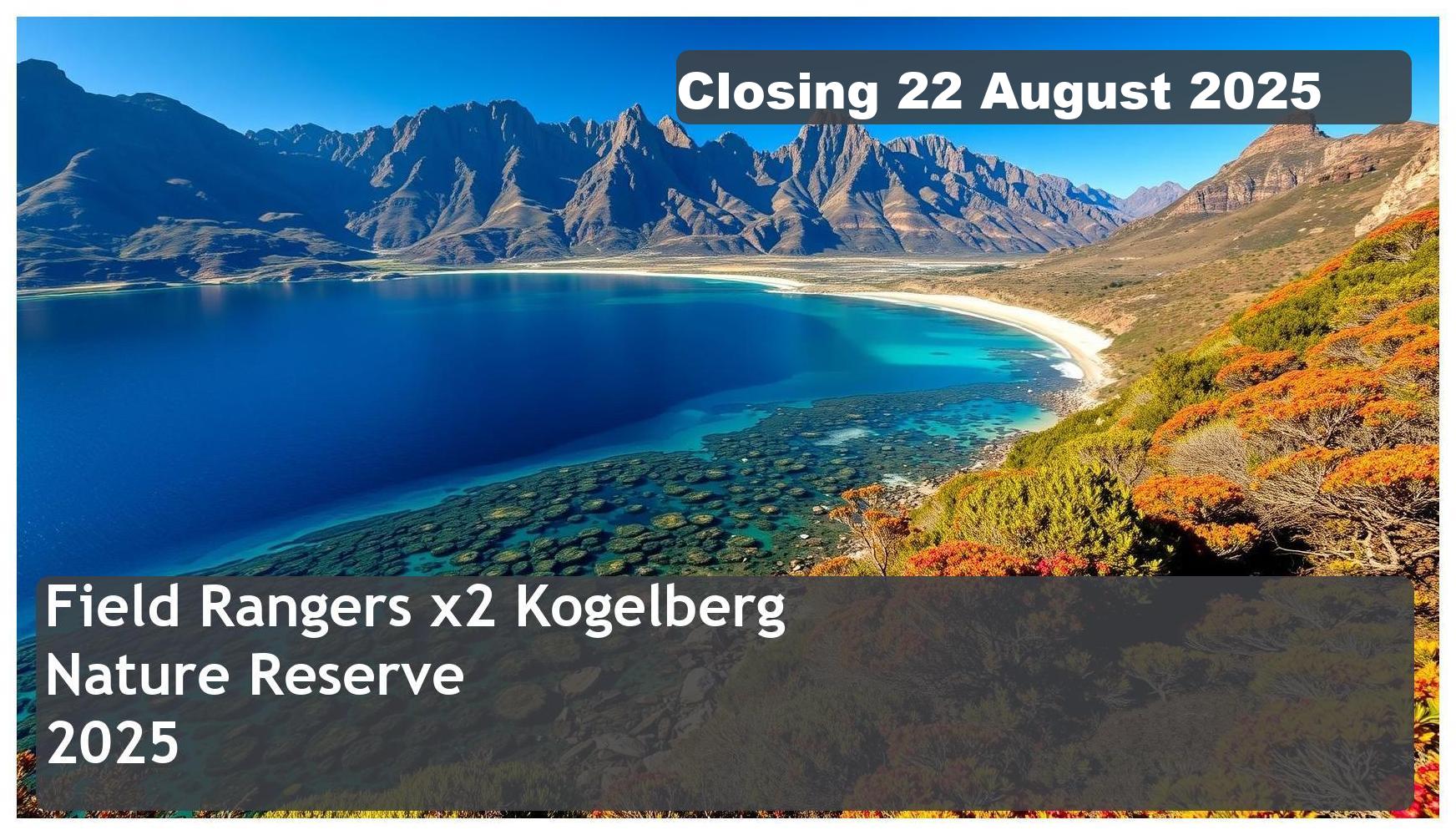
Hey future conservationists! Are you passionate about protecting South Africa’s incredible natural heritage, from our majestic mountains to our vibrant marine life? Do you dream of a career that makes a real difference in preserving biodiversity and promoting sustainable practices? Well, get ready, because the CapeNature Bursary Programme might just be your ticket to turning those dreams into reality! While this organisation is known for its vital work in managing protected areas like Kogelberg Nature Reserve, they also invest in the next generation of environmental leaders through their fantastic bursary programme.
The CapeNature Bursary Programme is designed to support dedicated students who are eager to pursue studies in fields critical to environmental conservation and management. As a leading conservation authority in the Western Cape, CapeNature understands the importance of nurturing talent. This bursary aims to ease the financial burden of higher education, allowing you to focus on your studies and ultimately contribute to safeguarding South Africa’s unique ecosystems. If you’re looking to become a guardian of our planet, this bursary could be the stepping stone you need!
Who Can Apply?
To be considered for the CapeNature Bursary Programme, you’ll generally need to meet specific criteria, aligning with CapeNature’s mission:
- Academic Focus: This bursary is ideal for students pursuing qualifications in fields like Nature Conservation, Marine Science, Environmental Management, Biodiversity Management, Protected Area Management, or other closely related disciplines. Think about studies that prepare you for roles like a Field Ranger, Conservation Officer, or environmental specialist.
- Academic Performance: You’ll typically need a strong academic record, demonstrating your commitment to your studies.
- South African Citizenship: Applicants must be South African citizens.
- Passion for Conservation: A genuine interest and commitment to environmental conservation, sustainable resource management, and protecting South Africa’s natural heritage is a big plus!
- Financial Need: While not always the sole factor, financial need often plays a role in bursary selections.
What Does It Cover?
While the exact benefits can vary based on the specific bursary policy and your individual needs, the CapeNature Bursary Programme generally aims to provide comprehensive financial support. This could include:
- Tuition Fees: Covering your academic costs at a recognised South African higher education institution.
- Accommodation: Support for your living expenses while you study.
- Prescribed Books & Study Materials: Helping you get all the resources you need for your courses.
- Living Allowance: A contribution towards your daily expenses.
CapeNature is dedicated to empowering students, ensuring you have the best possible chance to succeed in your conservation studies!
How to Apply?
Ready to take the plunge and apply for this incredible opportunity? Here’s how you can generally get started:
- Check the Official CapeNature Website: Bursary applications are typically managed through CapeNature’s official careers or bursary portal. While the provided link (https://capenature.simplify.hr/) is for general applications, we strongly recommend navigating to the “Bursaries” or “Careers” section on the main CapeNature website (www.capenature.co.za) to find the most accurate and up-to-date bursary application details and forms.
- Gather Your Documents: Prepare all necessary supporting documents, which usually include your academic transcripts, ID document, proof of registration or acceptance from a tertiary institution, and any other required forms.
- Follow Instructions Carefully: Pay close attention to all instructions on the official application portal. Ensure you submit your application well before the 22 August 2025 closing date.
If this sounds like the right bursary for you, don’t wait — apply now and explore more bursaries on Bursaries Room to secure your future in conservation!